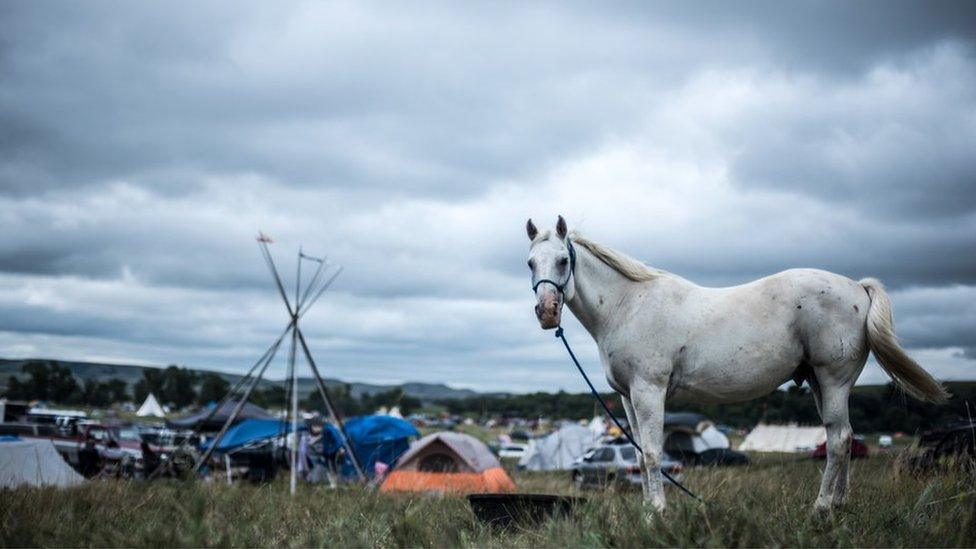Standing Rock: Camps continue to grow as standoff continue
- Published
The BBC's James Cook visits the Standing Rock camps
When Winona Kasto arrived at the Oceti Sakowin camp on the Standing Rock Sioux reservation, the grass was high and the days were long.
It was August and the site had grown a little from its beginnings in the spring, when as few as 15 people danced together each night, sharing stories and song.
Since then it has swollen dramatically. The grass is buried in deep snow and the campers are preparing for winter.
Tribal leaders say there are now more than 10,000 people here and in some ways it feels more like a small town than an encampment.
Not since Ms Kasto's ancestor Crazy Horse led the Lakota to victory at the Battle of the Little Bighorn in 1876 have so many Sioux gathered in one place.
All seven "bands" of the tribe are present, hence the name Oceti Sakowin, which means Seven Fires Council.
Standing Rock: Winter is coming
Many more indigenous people have come from all over the United States and around the world, united in opposition to what they call the black snake: oil.
Ms Kasto's job is to feed them. With a team of 50 people she is serving around 1,000 meals at each sitting.
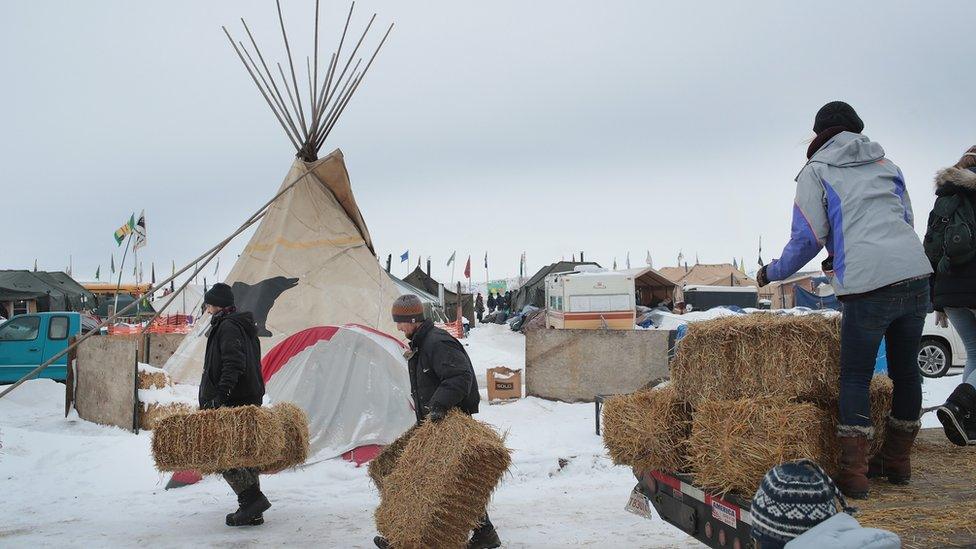
She worries about pollution of the Missouri river - and is scathing about the pipeline.
"With the white man, it's all about money" she tells me over a cup of tart but delicious citrus tea.
She wants the pipeline to be gone, a demand echoed by Ladonna Brave Bull Allard, who was instrumental in setting up the camp back in April.
"I want them to take every pipe out of the ground, repair the ground, put it back to the way it was and stop this fossil fuel from doing destruction of our land and water," she says.
The pipeline company Energy Transfer Partners insists the project is both safe and legal.
At times the battle to build it has been bloody.
Protestors who have confronted the police have been beaten back with rubber bullets and tear gas. Police deployed a water cannon against them in freezing temperatures.
Organisers say at least 17 people were taken to hospital on one night last month, some with hypothermia, one with a serious arm injury.
In all, more than 525 people have been arrested in the past four months.
The governor of North Dakota, Jack Dalrymple, has defended police tactics but he appears to have softened his tone recently, suggesting that it may be time for dialogue and reconciliation.
"We need to begin now to talk about how we are going to eventually arrive at a peaceful resolution of the situation and restore the relationship between North Dakota and the Standing Rock people."
Standing Rock Sioux tribal leader Dave Archambault accepts that the confrontations are being driven by both law enforcement and some people in the camps.
"It's both," he says, "there's people at the camp who have their own agendas.
"I condemn that kind of behaviour by both law enforcement and water protectors," he adds, using the protestors' preferred term for themselves.
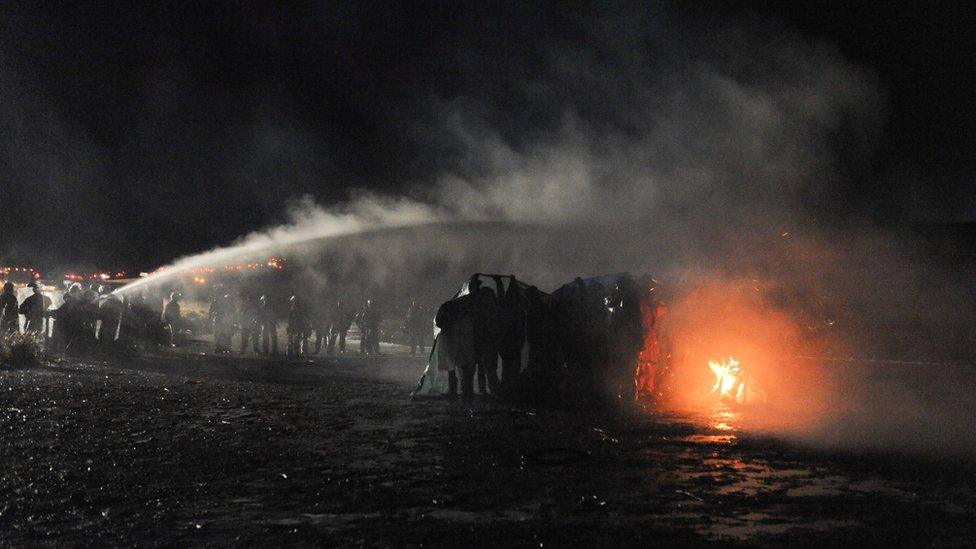
Police fired a water cannon during the pipeline protests near Standing Rock Native American Reservation.
But he worries that any negotiation would be on the terms of the federal government and the company.
"They're going to force us to accept the end result," he says.
Energy Transfer Partners has no intention of re-routing the almost 1200 mile, $3.8bn pipeline. The protestors say they will not stand down until their water is safe and their sacred sites are left alone.
Every day now more and more people seem to be joining the camp. This weekend military veterans are arriving from around the US.
Indigenous peoples have come from as far afield as New Zealand and Australia.
On Thursday, amid much tumult and tears, two traditional canoesw pulled into the camp on the Cannonball river, having paddled for ten days and 200 miles along the Missouri.
The voice of an emotional Patty Sam Porter of the Colville tribe in Washington State rang out as she asked permission to come ashore, declaring "we come all this way down the healing waters to heal my people in Standing Rock…to break the black snake will not ever come up again!"
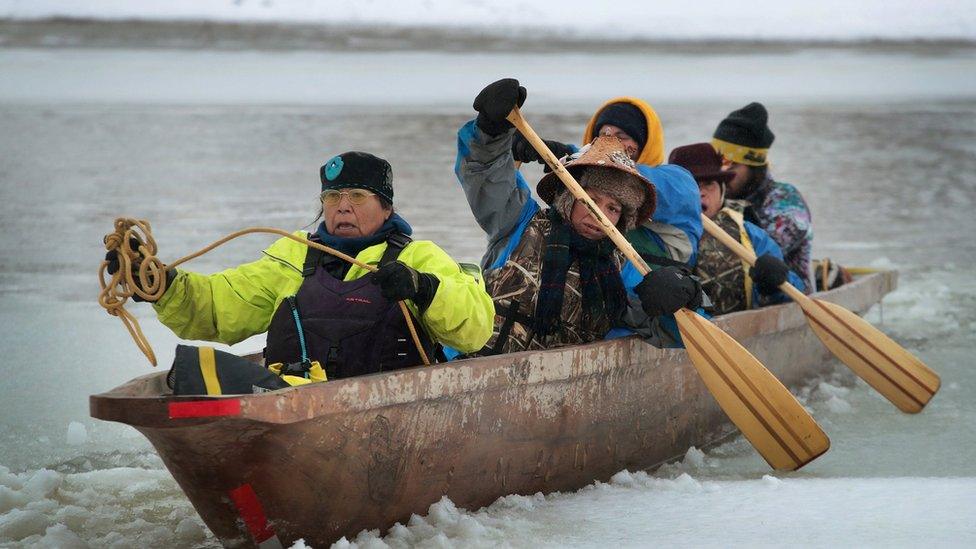
Protests are ongoing, despite the bitter cold
Others are arriving by more modern transport.
Deena Metzger, a writer, has flown in from California with her friend Cheryl Potts, who grew up in an indigenous community in Alaska. There are 11 others in their party.
"I think this is the most important event that's happening on the planet," Ms Metzger tells me.
"It's about trying to understand how threatened we are by fossil fuels," she says.
"I'm so moved by these people, their extraordinary wisdom, their great strength and determination and I just want to stand there behind them."
Ms Potts said she had been following the protest for months.
"This is big," she says. "We are so used to taking and taking and taking and taking and [saying] everything's OK but it's not."
"We just have to open up to it and remove ourselves from being able to have to use the black oil, the black snake."
- Published7 February 2017
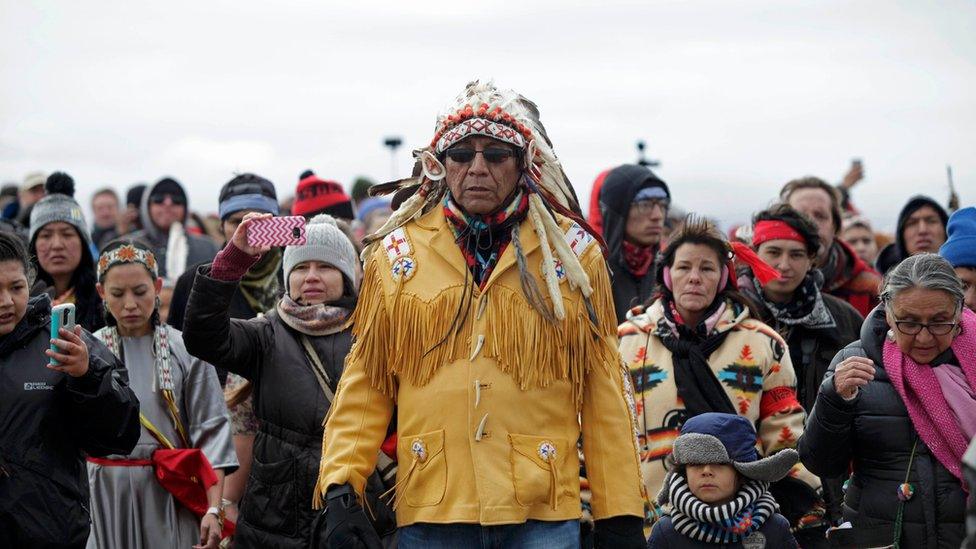
- Published2 December 2016
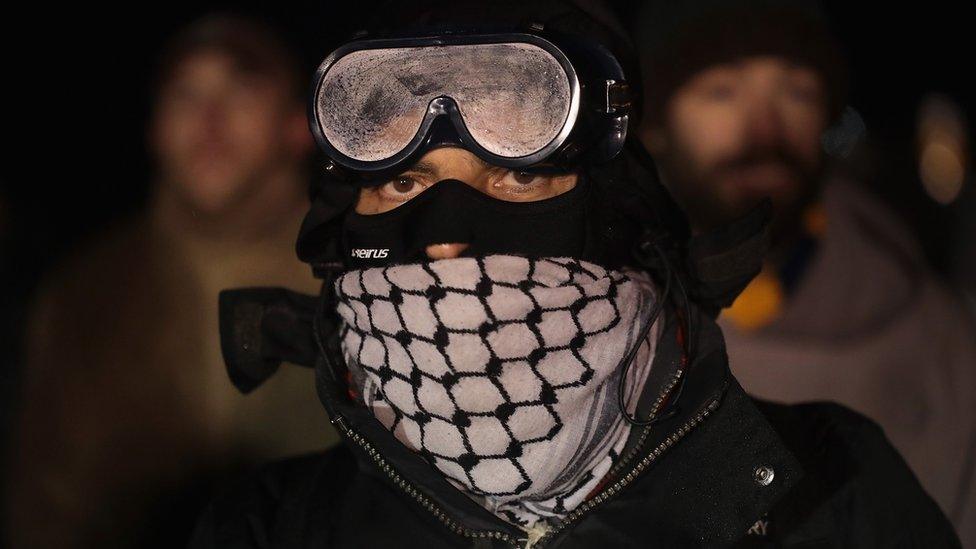
- Published2 December 2016
